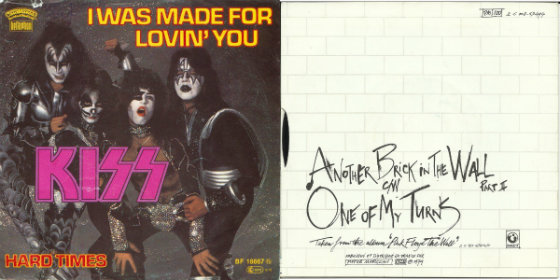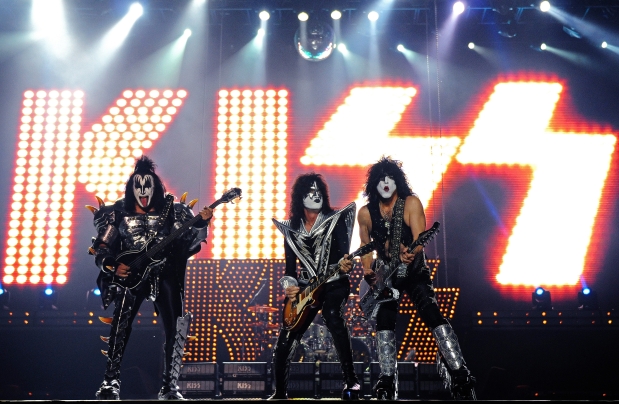Corey Dieterman | Houston Press
In 1979, disco was all the rage. For all the kids who had never bothered to pay attention when their parents would talk about it, it was sort of like dubstep. It was ubiquitous on the radio and even rock bands were vying to get in on the action so they didn’t get left behind in the new revolution. Sort of like how Korn did that album with Skrillex, only a little bit less horrible.
 Even punk bands were reluctantly dragged into it. In 1978, Johnny Rotten launched his post-punk band Public Image Ltd., which, for all its punk cred, did employ a number of disco beats. Around the same time, two of the biggest rock bands in the world were planning new records and silently plotting to work on their own disco singles.
Even punk bands were reluctantly dragged into it. In 1978, Johnny Rotten launched his post-punk band Public Image Ltd., which, for all its punk cred, did employ a number of disco beats. Around the same time, two of the biggest rock bands in the world were planning new records and silently plotting to work on their own disco singles.
Those bands? Pink Floyd and KISS. And oh boy, what those plans wound up wreaking.
In early 1979, Pink Floyd was hard at work sifting through the mess of demos Roger Waters had recorded during their break after the Animals tour concluded. The mostly acoustic demos were high in number and low in quality. If you’ve ever heard them (they’ve been bootlegged for years), it’s a wonder Floyd was able to parse an album out of them at all.
A whole album ended up on the cutting-room floor and became Waters’ first solo record,The Pros and Cons of Hitchhiking. Some other cuts ended up on The Final Cut and one or two made into the film version of their upcoming album, but were ultimately left off of what would become The Wall.
However, one track in particular got some special attention from Waters, lead guitarist David Gilmour, and producer Bob Ezrin. It was a three-song suite called “Another Brick in the Wall,” at the time simply a rough acoustic-guitar demo with Waters whispering over it. But more on that later.
While Floyd was in France working on that, an entirely different band was in New York, working on their own demos for an upcoming record. KISS was making what would eventually become the Dynasty album, hot off the heels of the second volume of their Aliveconcert-recording series and simultaneously=released solo records by all four members.
By this time, Peter Criss was being replaced regularly by session drummers and the remaining KISS members were looking outside themselves for songwriting ideas. They had come about as far as they could on the pure “rock” sound, and both Gene Simmons, ever the consummate businessman, and Paul Stanley were looking into what they could do to keep up with current trends.
Enter Stanley with a legendary idea. “Let’s write a disco song. How hard could it be?” he said. (Okay, I don’t know if he really said that, but it’s as close to the truth as necessary.)

